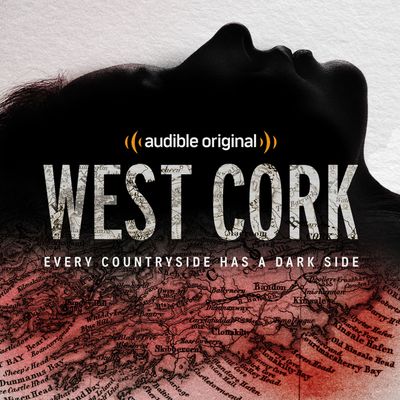
West Cork, the Irish setting of the recent Audible Original podcast of the same name, is said to be an idyllic place. It’s the kind of locale that draws the kind of people who want to get away from the rest of the world, either by choice or circumstance: naturalists, isolationists, misfits, artists, celebrities, and so on. But of course, escape can never last. The world creeps in, the unexpected happens, and eventually there’s catastrophe. In this case, it’s the murder of a Frenchwoman that triggers the dawn of a less-soft world.
“It took some place special and it made it everywhere else, that’s what it done,” a resident says in an early episode, extending the podcast’s theme and thesis. That the story of West Cork is codified as another entry into the true-crime genre is a testament to this notion — though, for what it’s worth, it’s a pretty good entry.
The crime in question is the 1996 murder of Sophie Toscan du Plantier, a French film producer who was found near her vacation home around the West Cork town of Schull. It’s neither a cold case nor one particularly resolved; indeed, the ordeal very much persists to this day. The case is widely known in Ireland, a dragged-out national fiasco and long source of morbid public fascination. As established in the podcast, the stuff it offers the Irish imagination is not unlike what Robert Durst offers New Yorkers.
Which is to say that the mystery and surprises of West Cork aren’t impervious to simple research. You could easily spoil the twists, one of which considerably defines the tenor of its opening episodes, with a straightforward Google query, and it is in this storytelling vulnerability that we see the contours of the true-crime podcast. Put simply: How can a show beat the research autonomy of its listener? One prominent response to this question can be seen in the rise of the semi-real-time serialized investigation, a structural innovation exemplified by the first season of Serial and carried on by productions like Atlanta Monster, which hooks listeners with the thrill of a pseudo-participatory experience.
There is, of course, another response: A show can attempt to justify its value apart from the core facts, beats, and twists of the crime in question. To that end, West Cork is intermittently sublime. To be sure, it hits all the standard true-crime mechanics well enough, going down theory rabbit holes and reexamining case details with workmanlike professionalism. (The details within run the gamut, flickering between deathly serious issues like domestic violence and stranger ideas like the evocation of lycanthropy.) But the podcast, led by documentarian Jennifer Ford and investigative journalist Sam Bungey, is vastly more soulful than so many of its peers, in large part by functioning as an exploration of how a tragedy, mixed with spectacle, can redefine and consume the terms of a place, a person, and a time.
West Cork is an involved character study, and this becomes clear after an early twist. I won’t spoil its substance, only to say that it reveals the (easily Googleable) identity of the prime suspect behind du Plantier’s murder. The show sticks close to this person throughout its 13-episode run, and while the decision to do so might seem frustrating, the move is nonetheless understandable. The suspect has become intimately fused with the narrative of the murder itself, even if he isn’t ultimately responsible for it. Self-aggrandizing, theatrical, aggressively and embarrassingly masculine, the suspect engenders a thorny conundrum for the project: You can’t tell the story of this murder without telling the story of this person, but just how much of his story should stand in for the greater tragedy? In his clear hunger for attention and extreme willingness to communicate with Ford and Bungey, the life and times of the prime suspect consumes West Cork the podcast in much the same way he consumes West Cork the place. His will to be recognized sweeps everything else to the side, including and especially the victim herself, Sophie Toscan du Plantier, who is given much less attention and analysis, proportionally speaking, in the show’s otherwise meticulous and thoughtful reporting.
That said, West Cork adeptly grapples with this conundrum, mostly because it takes pains to constantly return to the murder’s impact on the place. The final scene involves a gorgeous illustration of a moment in a pub, one that features an interaction that could otherwise be just another conversation on a carefree day in an idyllic life, but is actually leavened with a dark, intense history. It’s a haunting, unforgettable coda, and a reminder of why it’s so difficult to be more than the sum of things that happen to us.


